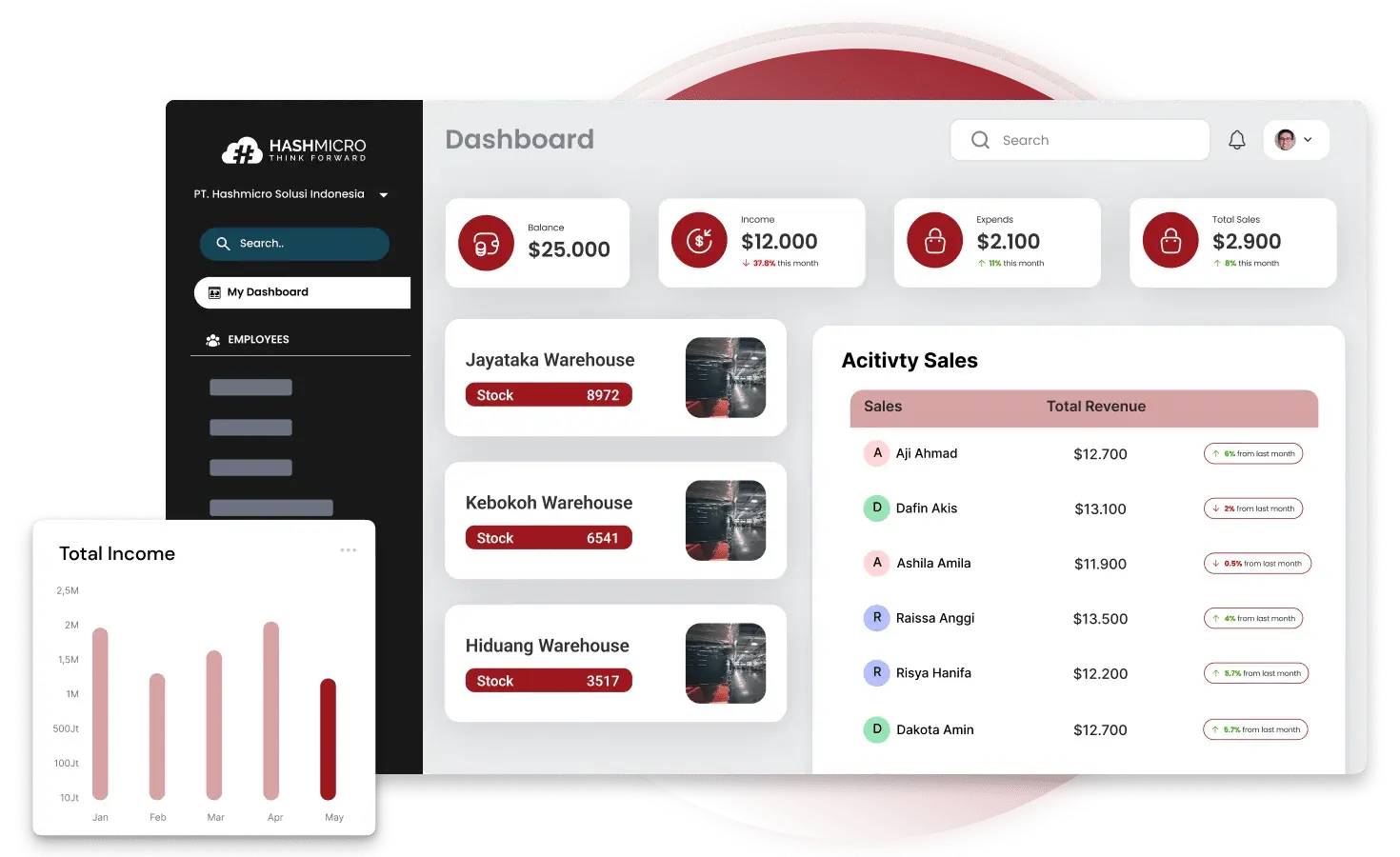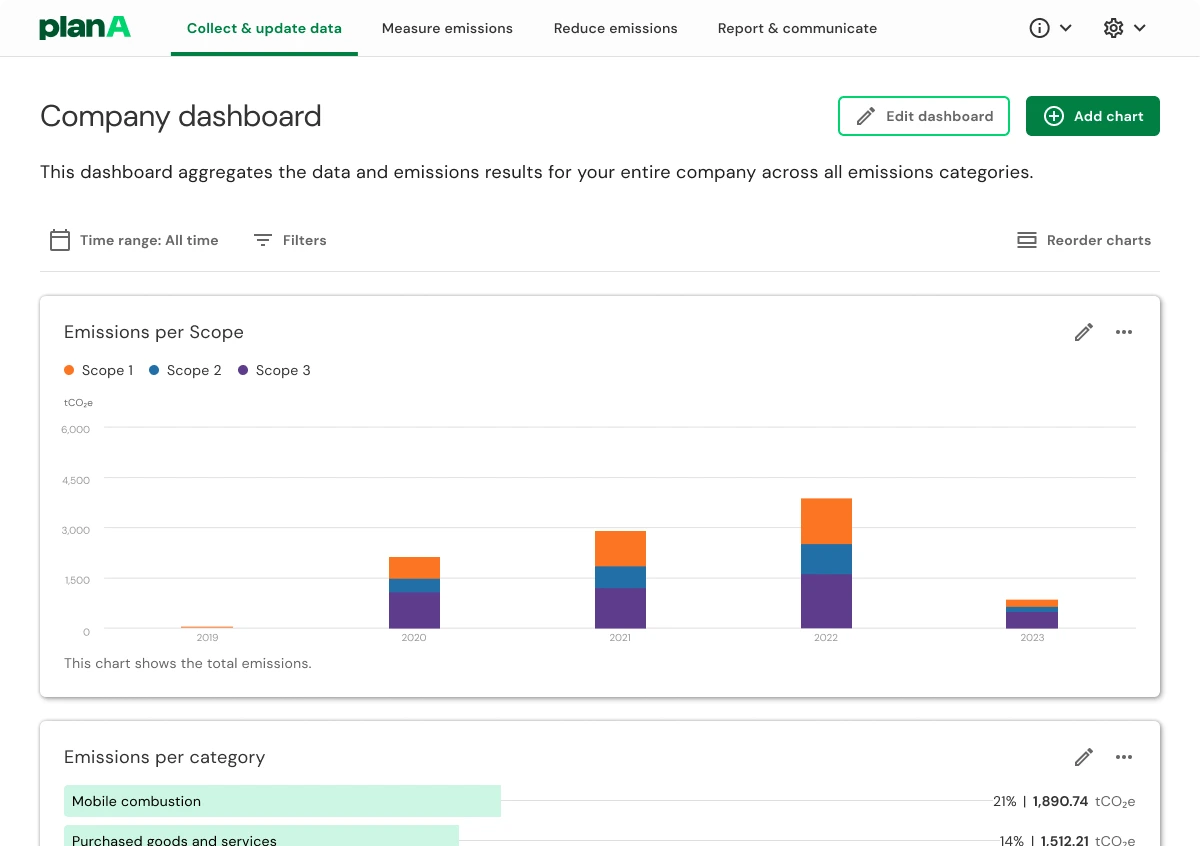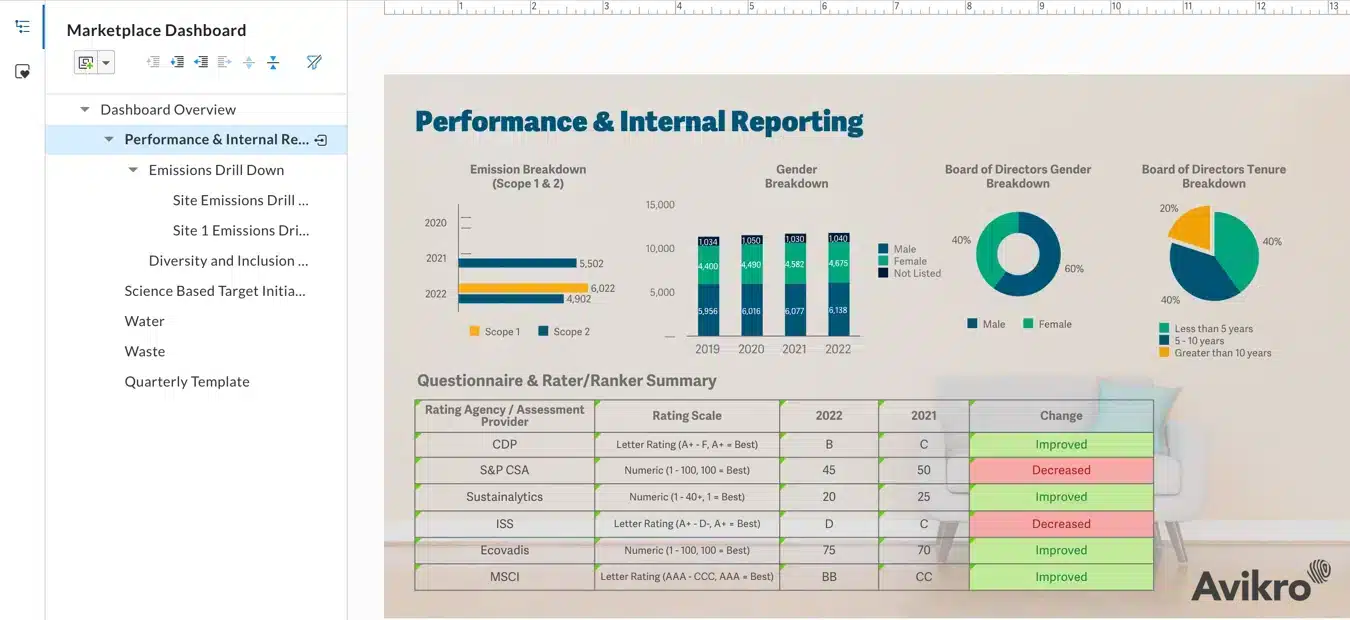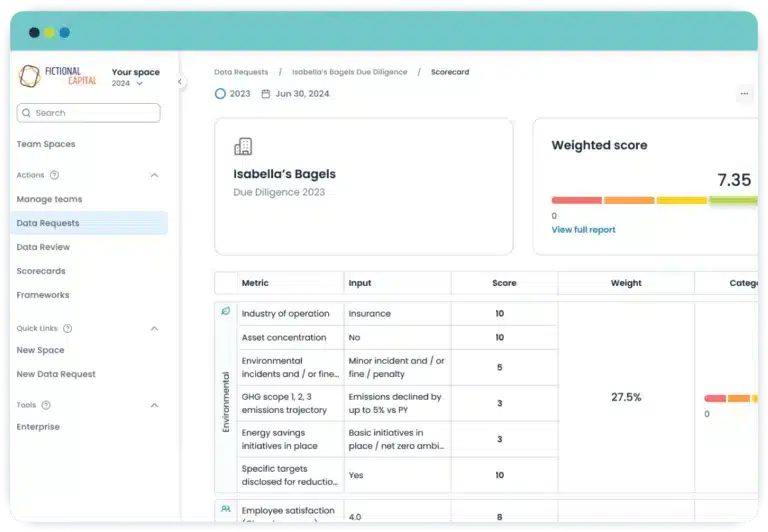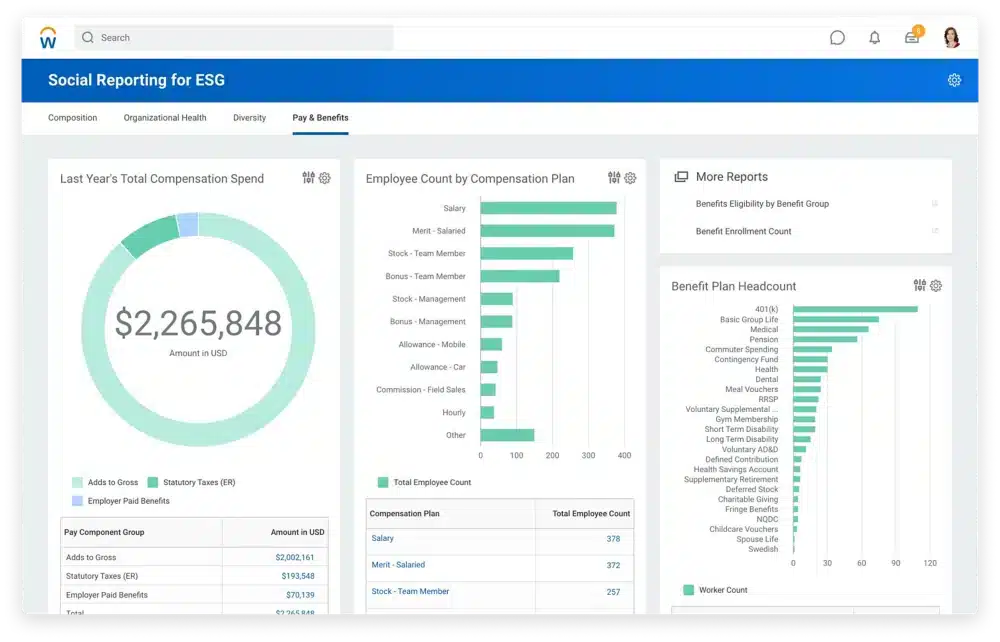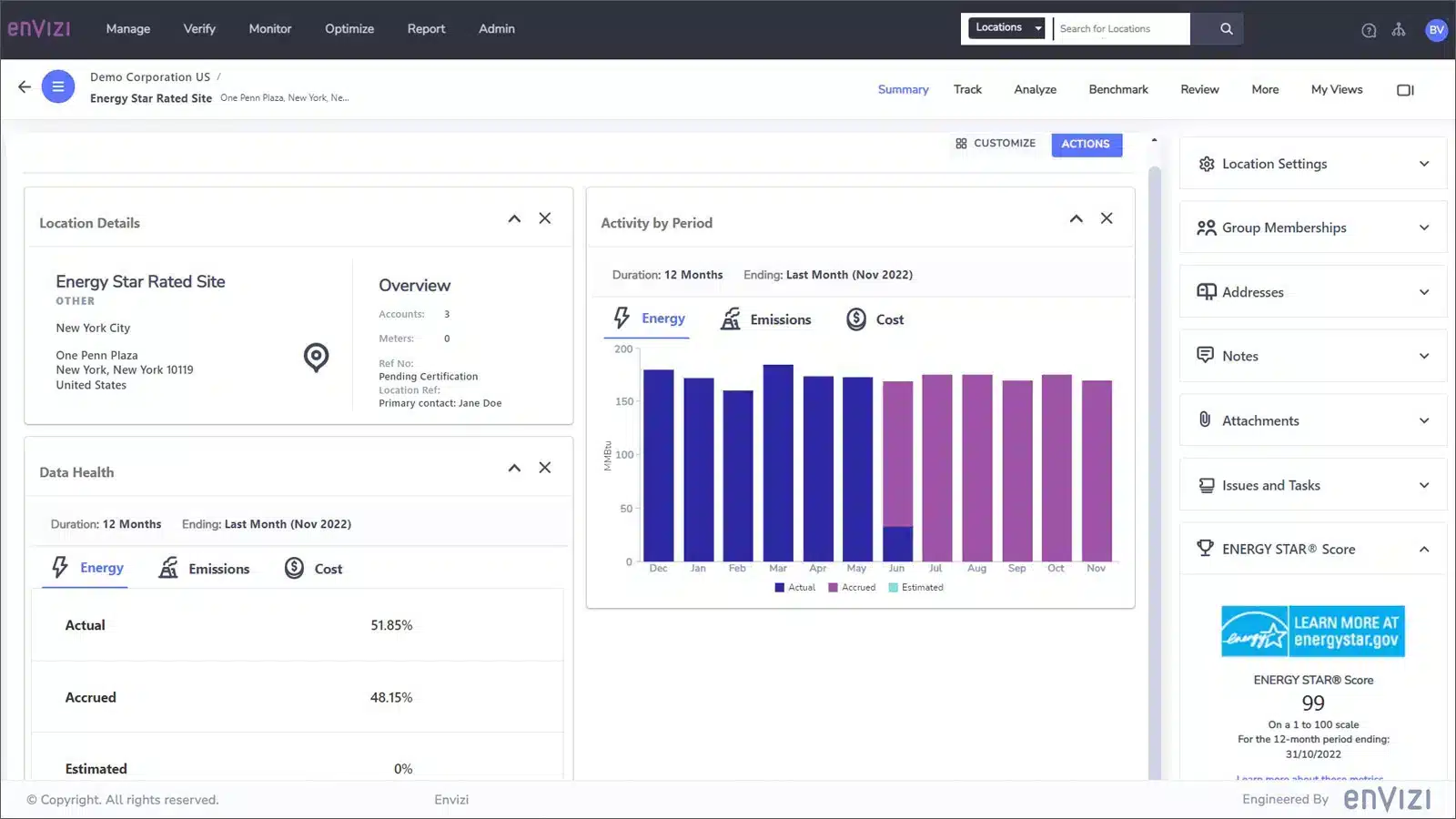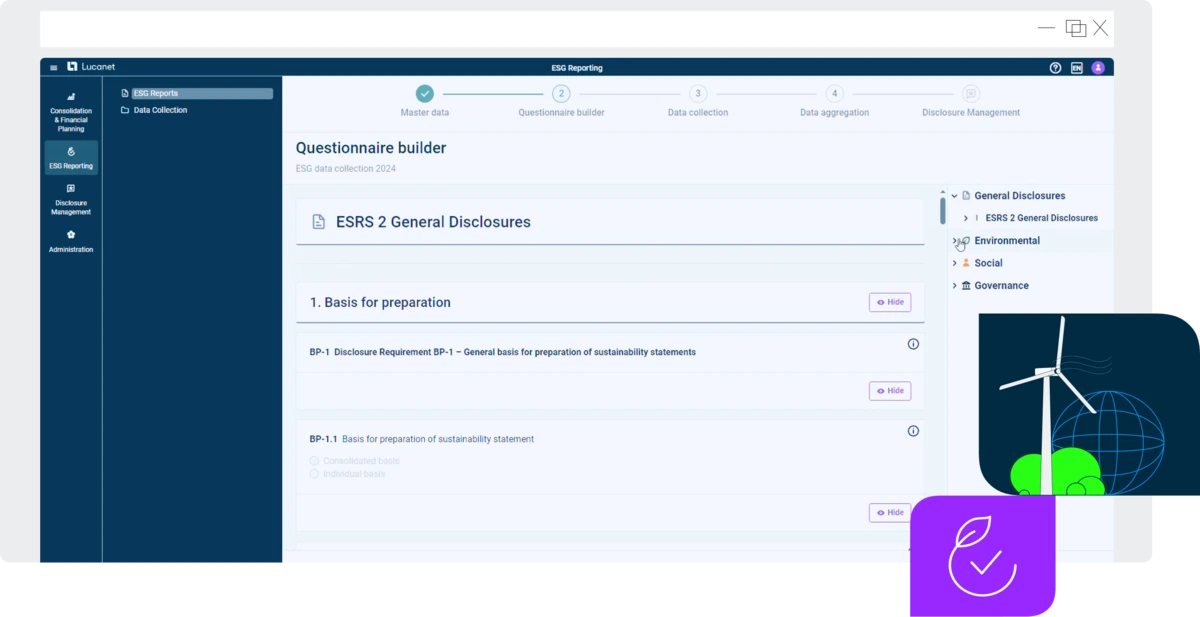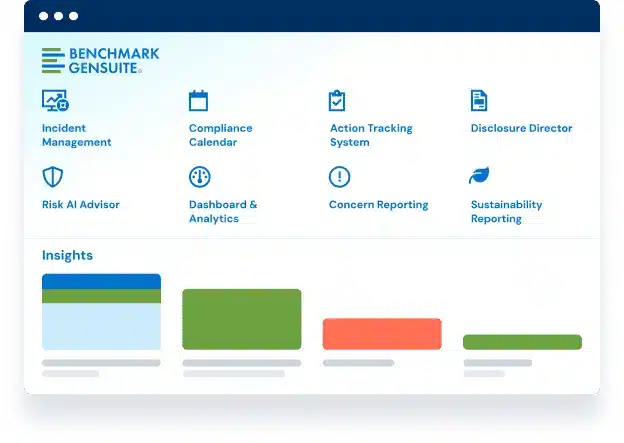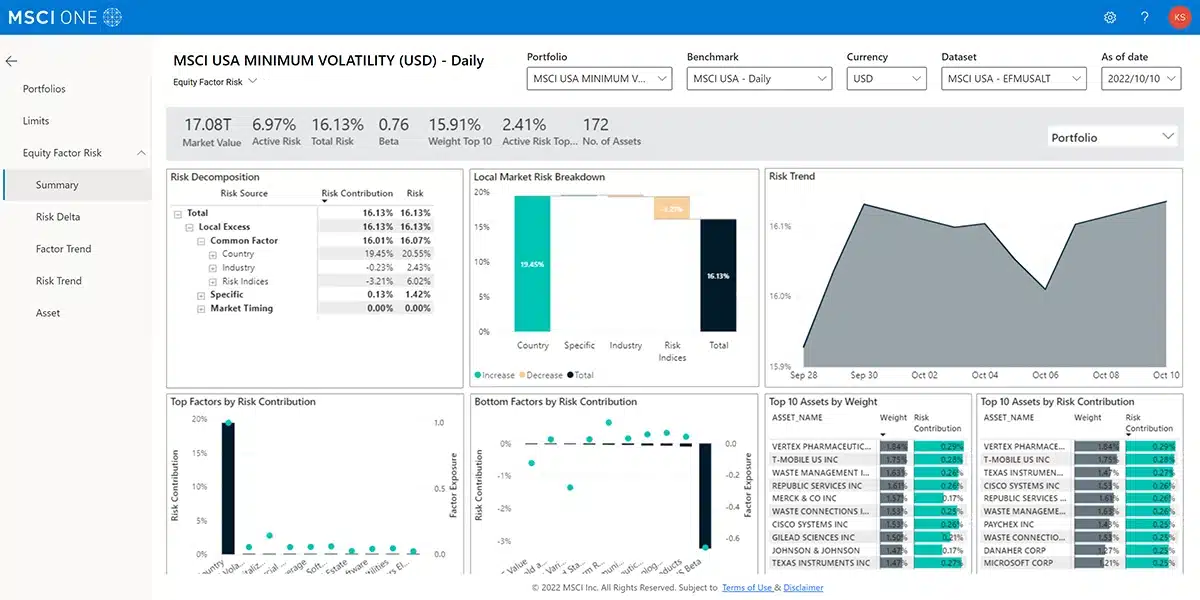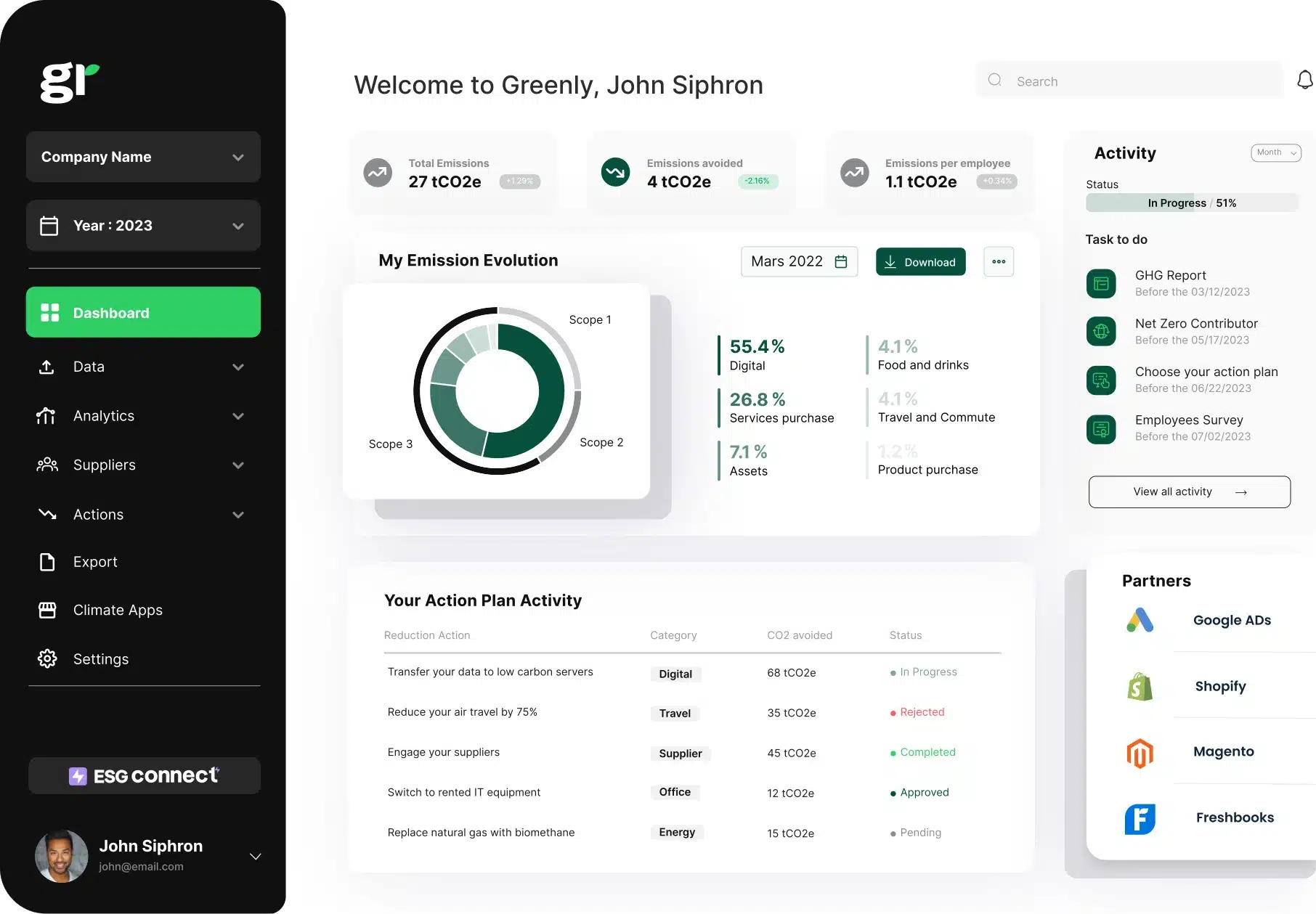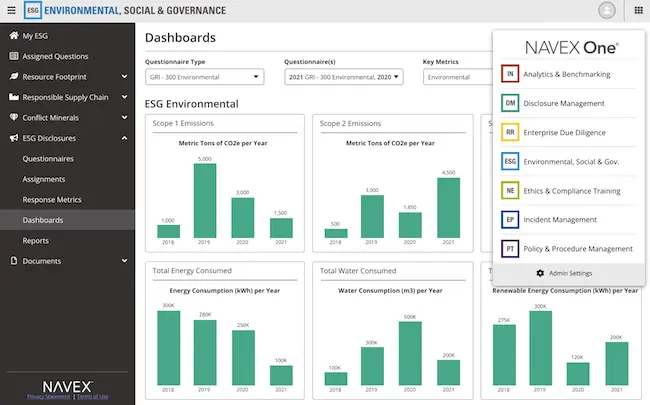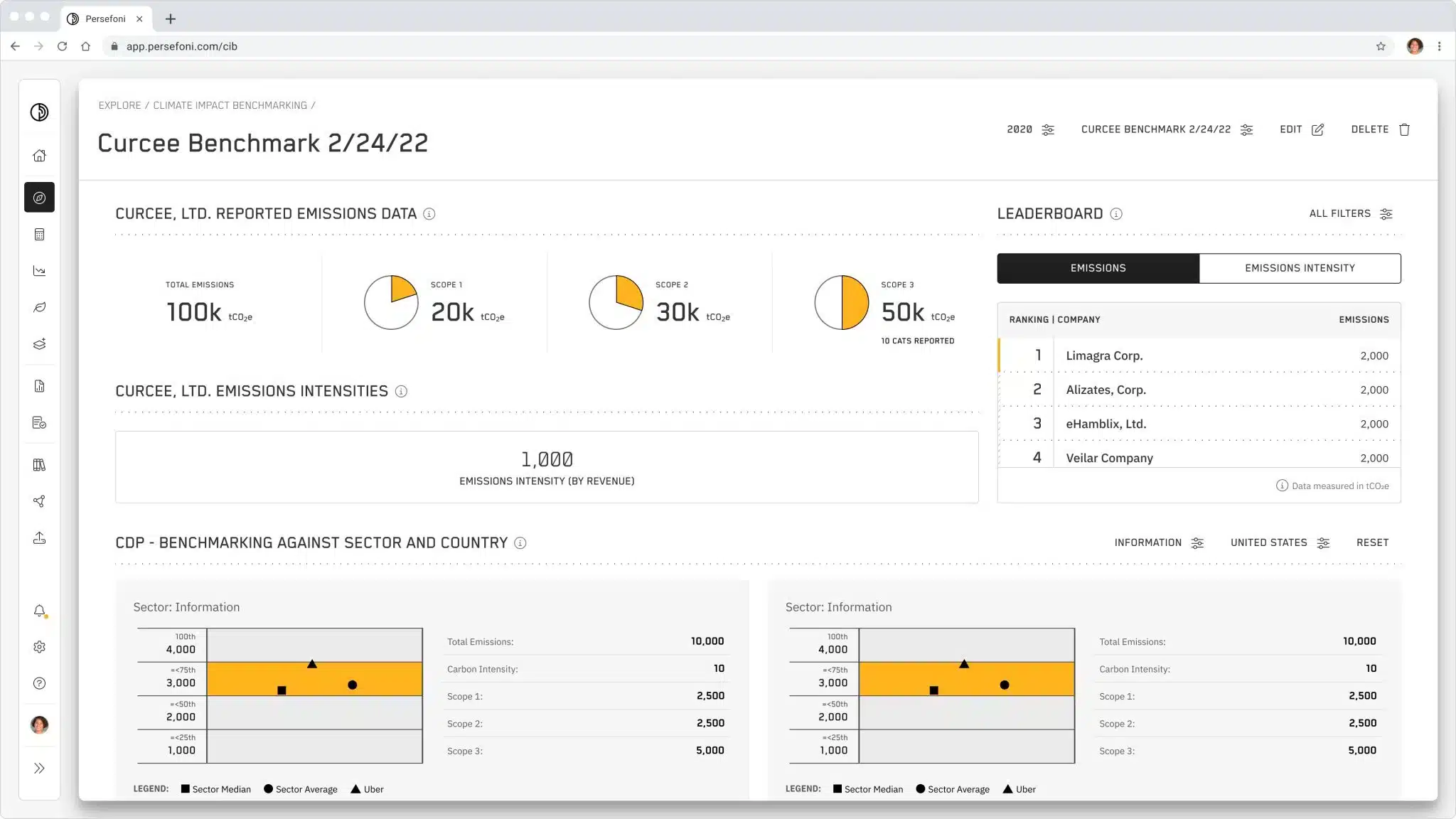Did you know environmental, Social, and Governance (ESG) software has become increasingly popular among businesses today? Popular among businesses today? This is largely due to the growing consumer preference for companies actively engaging in ESG-related initiatives.
Beyond helping businesses stay competitive in the global market, adopting ESG in Singapore can drive profitability. With its advanced features, ESG software enhances operational efficiency, making sustainability efforts more manageable.
But with so many options available, which ESG software is the best? Read on to discover the top 12 ESG software solutions in Singapore for 2025 and essential tips for choosing the right one!
Table of Content:
Table of Content
Key Takeaways
|
What is ESG Software?
ESG software enables businesses to efficiently manage and report Environmental, Social, and Governance (ESG) data. Automating data collection, analysis, and reporting simplifies sustainability tracking and ensures compliance with evolving regulations.
ESG software revolutionizes the process by providing faster, more precise, and scalable solutions to enhance performance and ensure regulatory compliance. These tools support sustainability teams in various tasks, such as calculating and analyzing carbon footprints, adhering to ESG reporting frameworks, and tracking progress toward sustainability goals.
What is ESG?
Before understanding ESG software further, you should first know what ESG is. Environmental, Social, and Governance (ESG) is a framework for assessing a company’s sustainability impacts and practices.
ESG audits have become a key factor in evaluating business risks and an organization’s commitment to making a positive difference in the world. ESG is also divided into three important aspects, namely:
- Environment: Environmental focuses on a company’s impact on natural resources, including material use, waste management, pollution, water consumption, greenhouse gas emissions, and energy efficiency.
- Social: Social assessment assesses how a company interacts with employees, suppliers, customers, and the wider community. It includes diversity, equity, fair compensation, and employee retention.
- Governance: How ESG-related data is tracked, managed, and reported. Governance factors include board diversity, executive compensation, audit processes, internal controls, shareholder rights, and corporate transparency.
The Benefits of ESG Software
Using ESG software will make it easier for your business to receive and manage ESG sustainability data more efficiently. Here are some of the benefits that your business will get:
- Risk prevention & business resilience: Early detection of ESG risks allows companies to address potential issues proactively, ensuring long-term stability and compliance.
- Streamlined ESG data management: Automated data collection and analysis minimize errors and free up time for strategic decision-making.
- Transparent stakeholder communication: Well-structured reports enhance transparency, fostering trust and stronger stakeholder engagement.
- Compliance-ready reporting tools: Customizable templates simplify ESG reporting, ensuring alignment with international standards and regulatory requirements.
- Performance monitoring & benchmarking: Tracks sustainability progress over time, enabling organizations to refine their strategies and continuously improve.
- Informed decision-making: Real-time ESG data provides valuable insights, supporting ESG strategy choices that drive business growth and sustainability.
Top 12 ESG Software Solutions in Singapore
Here are the 12 best ESG software solutions in Singapore for 2025, designed to help businesses enhance sustainability, streamline compliance, and optimize ESG reporting—enabling data-driven decisions for long-term impact.
1. HashMicro
HashMicro’s ESG software is a cloud-based solution that automates and streamlines sustainability reporting and compliance. The system integrates various modules, such as carbon tracking and governance monitoring, and ensures real-time data synchronization for enhanced ESG management.
Additionally, HashMicro provides a free demo and consultation, allowing businesses to explore its features and understand how the software can improve sustainability efforts. Potential users can evaluate its capabilities before committing.
Why we chose it: HashMicro provides a robust ESG software solution with comprehensive features for end-to-end sustainability management. Its features enhance efficiency in assessing and managing environmental, social, and governance aspects.
Features:
- Carbon Footprint & Energy Monitoring: Automatically calculates carbon emissions, helping businesses track and reduce their environmental impact.
- Auto-Generated ESG Reports: Simplifies reporting by automating data collection and report generation, saving time and improving efficiency.
- ESG Strategy Consulting Support: Offers expert guidance on ESG strategy and policies to help your businesses align with global sustainability standards.
- Beyond Environmental Aspects: Measures workplace diversity, such as gender representation, and supports broader social and governance initiatives to help optimize ESG strategy.
- Supply Chain Sustainability: Evaluate supplier ESG performance to ensure ethical sourcing and sustainable procurement practices.
- Regulatory Compliance Management: Stay updated with evolving ESG regulations and streamline compliance through automated documentation and audit-ready reports.
- Governance & Risk Assessment: Strengthen corporate governance by managing policies, ethical business practices, and risk assessments to ensure transparency and accountability.
- Social Responsibility Tracking: Monitor workplace diversity, employee well-being, and corporate social responsibility (CSR) initiatives to enhance stakeholder trust.
| Pros | Cons |
|
|
2. Plan A
Plan A is a Germany-based company specializing in data-driven sustainability management solutions. Plan A provides ESG reporting tools focused on environmental impact through its carbon management platform. The system automates carbon accounting across all Scopes, allowing companies to track and report their carbon footprint as part of their ESG commitments.
Why we chose it: Plan A provides data-driven ESG solutions that help companies manage their carbon footprint effectively.
Features:
- Customizable reports to meet regulatory requirements
- Seamless integration with third-party platforms
- User-friendly dashboard for easy navigation
- Automated carbon footprint calculation
| Pros | Cons |
|
|
3. Workiva
Workiva offers a cloud-based integrated reporting and compliance platform, including ESG reporting tools. Their solution is designed to help businesses gather, manage, and disclose ESG data while supporting multiple reporting frameworks and standards. Workiva also provides essential transparency for C-suite executives and other stakeholders.
Why we chose it: Workiva offers a platform enabling companies to report, manage, and track ESG performance comprehensively and transparently.
Features:
- Support for various international reporting standards
- Integration of ESG performance reporting software with financial systems
- Transparent and reliable data management
| Pros | Cons |
|
|
4. Novata
Novata provides sustainability software for private markets. It offers a framework builder to help companies identify relevant ESG data to collect. The platform includes commonly used frameworks and metrics, streamlining ESG data collection and reporting. It also features data visualization tools and flexible reporting options to present ESG insights effectively.
Why we chose it: Novata provides an ESG solution with a data-driven approach suitable for companies looking to enhance their sustainability reporting.
Features:
- Real-time tracking and reporting of carbon footprint
- Detailed, data-driven sustainability reports
- Customizable to align with global regulations
- Supports various ESG reporting standards
| Pros | Cons |
|
|
5. Workday
Workday provides an enterprise cloud platform incorporating ESG reporting within its financial and HR solutions. It enables organizations to manage ESG data alongside other business metrics, helping to simplify data collection and reporting processes on overall sustainability performance.
Why we chose it: Workday offers sustainability ESG reporting software with comprehensive integration into enterprise operational management.
Features:
- Real-time ESG reporting
- Data-driven sustainability risk analysis
- Seamless integration with ERP and financial platforms
- Sustainable workforce management
| Pros | Cons |
|
|
6. IBM Envizi
IBM Envizi simplifies ESG data management by consolidating it into a single platform. It automates data collection, tracks greenhouse gas emissions, optimizes sustainability reporting, and helps identify opportunities for reducing carbon impact with AI and cloud-based. Envizi allows companies to manage and report their sustainability data more easily and accurately.
Why we chose it: IBM Envizi offers a comprehensive ESG solution focusing on data-driven sustainability management and advanced analytics.
Features:
- Comprehensive data-driven ESG tracking software
- Energy and natural resource management
- Sustainability reporting aligned with global regulations
- Integration features with operational and ERP systems
| Pros | Cons |
|
|
7. Lucanet
Lucanet’s ESG reporting software is designed to streamline reporting with data collection, analysis, and report generation tools. It offers pre-configured templates that align with global standards, automated data gathering, and seamless integration with financial reporting systems.
Why we chose it: Lucanet provides a robust ESG solution with advanced analytics and in-depth reporting suitable for companies seeking to enhance sustainability transparency.
Features:
- Comprehensive ESG performance analysis
- Strong integration with ERP systems
- Detailed sustainability reporting
- Advanced ESG data visualization capabilities
| Pros | Cons |
|
|
8. Benchmark Gensuite
Benchmark Gensuite provides ESG reporting tools within its comprehensive EHS management suite. The platform helps businesses gather high-quality ESG data, track sustainability initiatives, and achieve performance goals. Gensuite also uses a cloud platform that enables companies to report and measure their ESG impacts efficiently.
Why we chose it: Benchmark Gensuite offers a comprehensive solution for sustainability management and ESG reporting, making it suitable for companies seeking to enhance transparency and compliance.
Features:
- Cloud-based ESG compliance management
- Real-time data tracking and analysis
- Comprehensive carbon footprint reporting tools
- Robust ESG audit and assessment features
| Pros | Cons |
|
|
9. MSCI
MSCI, a prominent provider of investment decision support tools, delivers ESG solutions encompassing data, research, and analytics. These tools assist investors in incorporating ESG factors into their investment strategies, offering ESG ratings, research insights, and portfolio analysis tailored for investment professionals.
Why we chose it: MSCI offers ESG solutions that focus on detailed data analytics and risk assessment, enabling companies to make more informed decisions.
Features:
- ESG risk assessment for investment portfolios
- Customizable data and research insights
- Reporting aligned with international standards
| Pros | Cons |
|
|
10. Greenly
Greenly offers a versatile carbon management SaaS solution designed to support businesses of all sizes across various industries. The platform enables companies to accurately measure their carbon footprint, implement effective strategies to reduce emissions and explore offsetting options to meet sustainability goals.
Why we chose it: Greenly offers a platform focused on carbon emissions analytics, helping companies measure, understand, and reduce their environmental impact.
Features:
- Real-time carbon emissions monitoring
- Accurate carbon footprint calculations
- Interactive cloud-based dashboard
- Actionable recommendations for emission reduction
- Compliance support for various international reporting standards
| Pros | Cons |
|
|
11. Navex One
NAVEX Global offers a comprehensive suite of risk and compliance management solutions to help organizations navigate regulatory complexities, mitigate risks, and maintain ethical business practices. Their platform supports companies in fostering a transparent and compliant workplace culture while streamlining processes to enhance overall operational efficiency.
Why we chose it: NAVEX One simplifies risk management and regulatory compliance. It integrates ESG, risk, and compliance into one system, reducing complexity.
Features:
- Streamline policy management and employee training
- Monitor ESG commitments of third-party partners
- Ensure compliance during employee onboarding
- Centralize the management of incidents effectively
| Pros | Cons |
|
|
12. Persefoni
Persefoni is a company that offers ESG management software designed for carbon footprint tracking and reporting. They focus on providing tools that enable businesses to measure and efficiently report their greenhouse gas emissions accurately.
Why we chose it: Persefoni offers a solution for managing and reporting corporate carbon footprints with high accuracy and user-friendly functionality.
Features:
- Accurate carbon footprint assessments
- Strategic planning for emission reductions
- Effective management of decarbonization initiatives
- Comprehensive sustainability tracking and reporting
| Pros | Cons |
|
|
Key Features to Consider When Choosing ESG Software
You must understand the key features that make ESG software effective and align with your company’s needs. From data automation to real-time analytics and reporting capabilities, the right ESG software can streamline environmental, social, and governance initiatives while enhancing transparency and decision-making.
Here are the key features to consider when selecting ESG software to ensure a seamless and efficient implementation.
1. Reliable support
The best ESG software solutions come with a dedicated support team that can assist in managing your organization’s specific needs. This team should have expertise in emissions management and real-time reporting, ensuring accurate compliance with sustainability standards.
2. Efficient data processing
ESG software must be capable of handling large volumes of data, given the complexity of ESG reporting. Its ability to collect and analyze key data, such as supply chain emissions, energy consumption, gender pay gaps, and corruption reports.
3. Collaboration capabilities
Built-in collaboration tools that enable teams to work seamlessly are essential for sustainability management. The ideal software provides access to centralized data processing and report generation, improving cross-departmental efficiency.
4. Overall product strength
Factors like market presence, leadership, historical performance, and market share indicate how well an ESG compliance software delivers on its promises. It’s also important to assess whether the software was specifically designed for the ESG framework or simply an add-on feature.
With the right features, ESG software will give your business many advantages, including streamlining sustainability management, ensuring compliance, and making data-driven decisions. ESG software can also simplify ESG assessments and reporting.
HashMicro ESG software offers a complete solution with various features, such as tracking performance, automating reports, and maintaining regulatory compliance, helping businesses drive impactful sustainability initiatives.
Want to explore HashMicro ESG software further? Click the banner below to learn about the pricing options.
How to Choose the Right ESG Software for Your Business
You may wonder how to choose the right ESG software for your business. Selecting an effective platform can be challenging, but we have outlined how to choose it correctly to help your company find the best ESG software to improve your business ESG rating.
Step 1: Understand your requirements
Start by clearly defining your business’s specific ESG objectives. Determine whether you are looking for a solution to enhance transparency in reporting or a tool to ensure compliance with evolving regulations.
Identifying these needs will help you select software that aligns with your sustainability strategy and operational goals if you have already defined them. Understanding your priorities will make comparing different ESG software solutions easier.
Step 2: Analyze user feedback
Researching user reviews can provide valuable insights into the software’s functionality, ease of use, and overall effectiveness. Look for feedback from businesses like yours to understand how well the software performs in real-world scenarios.
Please pay attention to common praises and complaints to gauge whether the tool meets expectations and delivers on its promises. Engage with existing users through forums or professional networks to gain firsthand insights into their experiences.
Step 3: Assess the cost factor
ESG software has varying pricing models, from one-time purchases to ongoing subscription fees. Consider the initial investment and long-term costs such as maintenance, updates, and additional features.
Weigh these expenses against the benefits and efficiency gains the software provides to ensure it offers good value for money. Additionally, scale the software to meet your business needs, preventing the need for costly upgrades in the future.
Step 4: Evaluate customer support services
Reliable customer support is essential for seamless implementation and continued use of ESG software. Check whether the provider offers live chat, phone, or email assistance, and ensure their response time meets your business needs.
A knowledgeable support team can help resolve issues quickly, reducing downtime and ensuring your ESG processes run smoothly. Additionally, having access to training resources, user guides, or dedicated account managers can help you stay updated with new features.
Frequently Asked Questions
-
What is an ESG software?
ESG software is software designed to help organizations manage and measure their environmental, social, and governance (ESG) performance. ESG data can be used to make better decisions about where to allocate resources and what policies or practices to implement.
-
What is the ESG tool?
ESG intelligence tool is an industry-agnostic business intelligence platform used to assist companies across all sectors in monitoring and reporting their environmental, social, and governance performance.
-
What are ESG programs?
Environmental, social, and governance (ESG) is a framework for assessing an organization’s business practices and performance on various sustainability and ethical issues. It also provides a way to measure business risks and opportunities in those areas.






